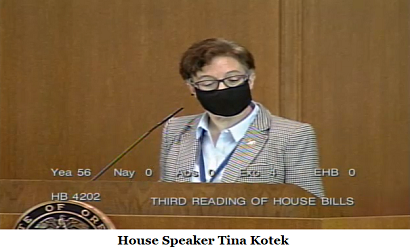Special session takes aim at seniors and low-income families
A Special Session called to address COVID issues and Police Reform to appease rioters, deviated shortly after opening in SB 1603. Proponents begged for assistance to help rural communities to install internet service in areas that still live a wholesome life away from WIFI waves. The claim is the lack of internet access has hampered virtual schooling during the pandemic. However, some areas with internet that chose to issue paper workbooks had lot less confusion and more success among grade schoolers than those needing to work on a computer.
Not that we don’t want rural communities to have internet, but on whose backs do we put the cost? In the hearing, it was presented that low-income families have given up the cost of landlines for cell phones for cost savings. Cell phones are used for security and safety tracking between family members. Likewise, seniors have gone to cell phone use for security and safety.
SB 1603 lowers the landline tax from 8.5% to 6% that will benefit the very people who want internet access. Only to add a 6% tax on all cell phones on families that already have internet access. This type of distribution of wealth hits the most vulnerable. For example, a family with four cell phones could face an added charge of about $18 on their monthly bill. This is a lot for low-income families, and seniors on a fixed-incomes.
This bill was passed after testimony alerting the committee that PUC is in the process of reviewing the Oregon Service Fund that expires in 2021, and should be considered before more funding is instigated. The bill raises $2.5 million per biennium, and caps the fund at $28 million annually. However, only 15% is designated to build broadband. This is a slow way to get access when the estimate is in the billions. The Emergency Board provided $20 million of Cares Act funds for broadband already, and USDA provided $6 million to Grant and Wheeler Counties for this purpose. Representative Greg Walden announced that the Federal Communications Commission authorized $67.7 million for rural broadband in Oregon over the next 10 years for ten rural counties. All this funding has not been utilized to see where or if additional funding is needed, but it did not deter the Democrat assembly from imposing this tax on the most vulnerable along partisan lines.
At a time when this state is hurting on every level, adding an additional burden on all families is poor judgment and poor leadership. Was this the appropriate way to expand internet? What was the big hurry to foist another tax on unsuspecting Oregonians?
--Donna Bleiler| Post Date: 2020-06-26 20:25:27 | Last Update: 2020-06-26 20:25:39 |






